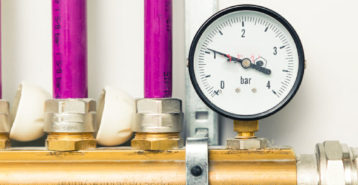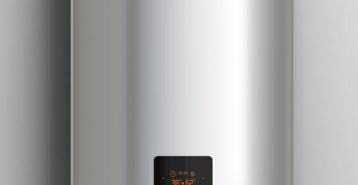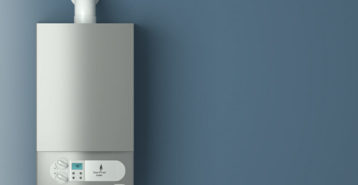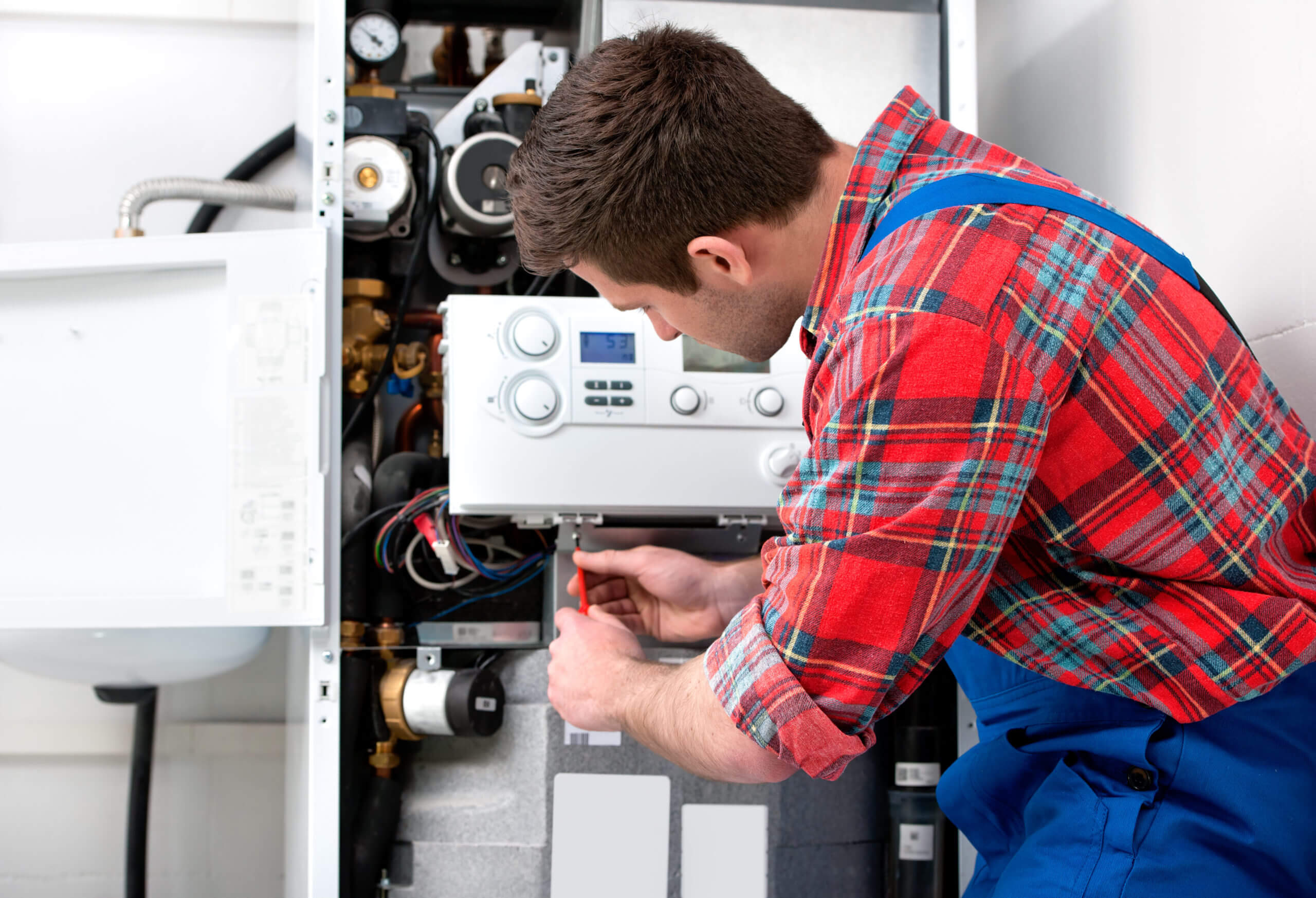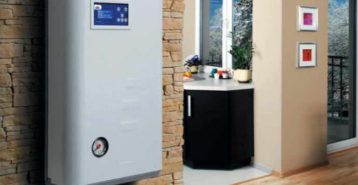How Much Does Steam Boiler Replacement Cost in 2025?
You’ll pay about $10,000 on average, or a range of $7,500 to $13,500 for a steam boiler replacement. A typical project includes the boiler itself, near-boiler piping, new controls, safety valves, and professional setup. Below is a simple breakdown to help you budget. At its most expensive, steam boiler replacement costs $15,000 to $20,000.
Steam Boiler Cost Breakdown
| Cost Component | Typical Range |
|---|---|
| Boiler Equipment (cast iron or steel), controls, trim | $3,500 to $7,500 |
| Near-Boiler Piping and Fittings | $1,200 to $3,000 |
| Venting/Chimney Liner (if required) | $600 to $2,000 |
| Labor (demo, install, setup, test) | $2,000 to $5,000 |
| Permits, Disposal, Misc. Materials | $200 to $1,000 |
| Total | $7,500 to $13,500 |
What You’ll Learn Next
- What drives costs up or down
- How steam compares with other boiler options
- How steam systems work
- What it costs to run steam heat each winter
- When a furnace conversion makes sense
- How long steam boilers last and how to help yours last longer
What Affects My Costs?
Small details matter with steam boiler replacement costs. Here’s what to watch for:
- Boiler Size and Type: Bigger homes need larger boilers. Steel units and advanced controls can raise your prices, but they may improve performance.
- Near-Boiler Piping: Steam needs properly sized pipes near the boiler to make dry steam. Reworking this area adds labor and fittings, but it’s crucial for quiet, even heat.
- Venting and Chimney: Older chimneys sometimes need a new liner or draft changes for safe operation, which adds to your cost.
- Fuel and Utilities: Gas, oil, or electric hookups — along with meter or tank location — can change install time and price.
- Access and Space: Tight stairwells, cramped boiler rooms, and multi-story runs add labor.
- Code, Permits, and Inspections: Local requirements vary and can add fees and time.
- Asbestos or Old Equipment Removal: Abatement and hauling fees affect the bottom line.
How Do Steam Boiler Costs Compare to Other Boiler Types?
Here’s how much you’ll pay for a boiler, based on fuel source.
| Boiler Type | Typical Total Cost | What It’s Best For |
|---|---|---|
| Natural Gas (standard to high efficiency) | $6,000 to $10,500 | Homes with gas service; balanced cost and efficiency |
| Oil | $4,500 to $12,000 | Homes without gas lines; strong heat output |
| Electric | $7,500 to $12,500 | All-electric homes, small spaces, easy installs |
| Combi (tankless heat + domestic hot water) | $7,500 to $12,000 | Smaller to mid-size homes that want hot water and heat in one unit |
| Steam (radiator systems) | $7,000 to $12,500 | Older homes with existing steam radiators |
| Solid Fuel (wood, pellets, coal) | $8,500 to $15,000 | Rural properties with on-site fuel and storage space |
How Does a Steam Boiler Work?
A steam boiler heats water until it becomes steam, then uses that steam to warm your home’s radiators.
- Fuel Heats the Boiler: Natural gas, propane, oil, or electricity powers burners or elements that heat water inside a steel or cast-iron boiler.
- Water Becomes Steam: As water boils, steam rises and collects.
- Steam Travels to Radiators: Steam moves through pipes to radiators around the home, giving off heat.
- Condensate Returns: As steam cools, it turns back into water and drains by gravity through return pipes back to the boiler to be reheated.
- Controls Keep it Safe: Pressure controls, relief valves, low-water cutoffs, and thermostats manage temperature, pressure, and water level.
Is Steam Heat Expensive?
Monthly costs depend on your fuel type, home insulation, thermostat settings, and local energy rates. The ranges below reflect a reasonably insulated home during the coldest month.
| Fuel Type | Typical Peak-Winter Month |
|---|---|
| Natural Gas (Steam Boiler) | $140 to $300 |
| Propane (Steam Boiler) | $200 to $420 |
| Heating Oil (Steam Boiler) | $180 to $400 |
| Electric (Steam Boiler)* | $250 to $500+ |
* Electric resistance steam is uncommon in homes because operating costs are usually higher.
What’s the Cost to Replace a Boiler With a Furnace?
Switching from steam radiators to a forced-air furnace can be a major project.
- Furnace Only (existing, good ductwork): $4,000 to $9,000 installed.
- Full Conversion (new ducts, registers, returns): $12,000 to $25,000+, depending on home size, layout, and finish work.
- Fuel Differences: Gas furnaces generally cost less to run than electric resistance heat. Oil can cost more to run than gas, but local fuel prices vary.
Consider before converting: Ductwork space, finish repairs, indoor air quality (filtration and humidity), and whether you prefer radiator comfort.
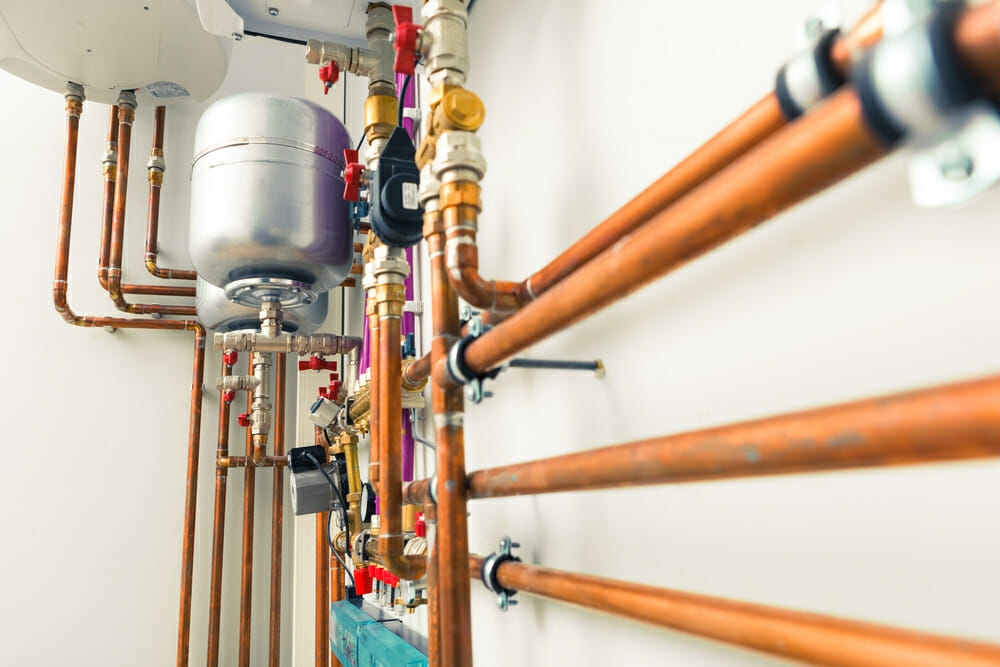
How Long Should a Steam Boiler Last?
With proper installation and regular service, many residential steam boilers last 20 to 30 years — sometimes longer. Quality near-boiler piping, correct water treatment, and yearly maintenance all affect your steam boiler’s lifespan. A longer-lasting system spreads your investment over more years; frequent repairs or early replacement do the opposite.
How to Improve Longevity
- Get the near-boiler piping right. Proper pipe size and layout help make dry steam and reduce noise.
- Service it annually. Test safety controls, clean components, and skim or flush as recommended.
- Maintain water quality. Follow your pro’s guidance on water level and treatment to reduce corrosion.
- Fix traps and vents. Radiator vents and steam traps wear out. Replacing them keeps heat even and reduces strain.
- Insulate steam mains. Pipe insulation keeps steam hot and cuts fuel use.
Ready to Move Forward?
Choosing the right contractor is as important as researching steam boiler replacement costs and choosing the boiler. Ask for itemized quotes (model numbers, piping scope, venting, permits), proof of licensing and insurance, and references for recent steam projects. We can connect you with pre-vetted local pros to compare designs, timelines, and clear pricing — so you get a quiet, comfortable system that runs safely and efficiently for years.
Compare top-rated HVAC pros in your area.
Read real homeowner reviews, explore qualifications, and view promotions. Modernize makes it easy to browse professionals and find one that will be perfect for your project.



